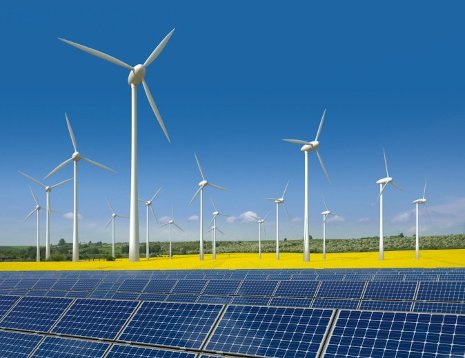Bangladesh must exploit green energy potential

Bangladesh has strong potential to exploit wind power and meet growing demand for green electricity, analysts said yesterday.
The 700km-long coastline in the coastal region of Bangladesh provides good prospects to develop offshore wind energy, said Anette Galskjøt, commercial counsellor of Danida Business Partnerships of Denmark in Bangladesh.
The hilly regions in Chittagong and Sylhet may be attractive sites to develop onshore wind energy, she said. “More studies are needed to realise the potential of wind energy.”
Anette spoke at a discussion between Nordic and Bangladeshi companies, organised by the Danish and Swedish embassies at The Westin Dhaka.
A total of 20 Danish companies, one Swedish company and an investment fund attended the session under the three-day Nordic trade delegation on green growth.
The companies came from different sectors such as: energy efficiency, renewable energy, engineering, water and waste management, fuel cell manufactures, and consultancy on bio-energy.
The companies engaged in one-on-one meetings to discuss potential business opportunities and possible partnerships to promote green growth and clean technology in Bangladesh.
Global entrepreneurs have shown tremendous interest in the green development of Bangladesh, she said.
The energy gap causes frequent power cuts that is a bottleneck to economy growth, Anette added.
She suggested Bangladesh explore new power options such as nuclear power, coal, wind, solar and biogas.
Renewable energy is the best option for green economic growth as the government aims to generate 5 percent power from renewable energy by 2015, she said.
Solar energy is the most evolved renewable energy in Bangladesh, she added.
With 250-300 sunny days a year, it is estimated that Bangladesh receives 10,000 megawatts of solar radiation daily, which exceeds the daily electricity demand in the country, Anette said.
Around 2.8 million solar home systems have been installed in Bangladesh with a power generation capacity of 115MW, she said.
The infrastructure of Bangladesh is suited to biogas and the climate is suitable to accommodate energy efficient heat, said Anette.
The rapid urbanisation of Bangladesh has led to a much polluted capital with growing waste problems, she said, adding that a large part of the waste is organic, which would be suitable for biogas production.
Dhaka is among the 5 most polluted cities in the world; so, the country needs to reduce pollution and people believe the solution lies in clean technologies, she said.
Denmark has 2,200 clean tech companies with an annual turnover of $43.9 billion, while Sweden has 3,500 clean tech companies with an annual turnover of $14 billion.
Nordic companies can offer years of experience in wind power, solar energy, biogas, water treatment, recycling systems for waste and garbage and organic food production, she said.
Green growth possesses a large untapped investment potential in Bangladesh and can provide solutions to the country’s challenges, she added.
Nasrul Hamid, state minister for power, energy and mineral resources, said: “In the energy sector, we are exploring the potential of renewable energy as our mission for green growth.”
“Our Renewable Energy Policy envisions 5 percent of total generation from renewable sources by 2015 and 10 percent of the same by 2020. Our achievement is less than 150 MW, a major part of which came from solar home systems.”
Bangladesh has crossed a landmark by installing 2.8 million solar home systems, Hamid said.
“We have taken programmes to generate 500MW of solar power through various modalities, such as roof top solar systems, solar irrigation and solar parks.”
“We are also exploring wind potential. We have signed a contract for a 60MW wind power project with a consortium where a Danish company is one of the partners,” he said.
Bangladesh is not a contributor to greenhouse gases leading to global warming and a rise in the sea level, he said.
However, Bangladesh is a sufferer and the most vulnerable country affected by global warming that leads to a rise in the sea level, he said.
The developed nations have a responsibility to compensate for the loss due to the adverse affects of climate change in Bangladesh, he added.
Collected:
http://www.thedailystar.net/

